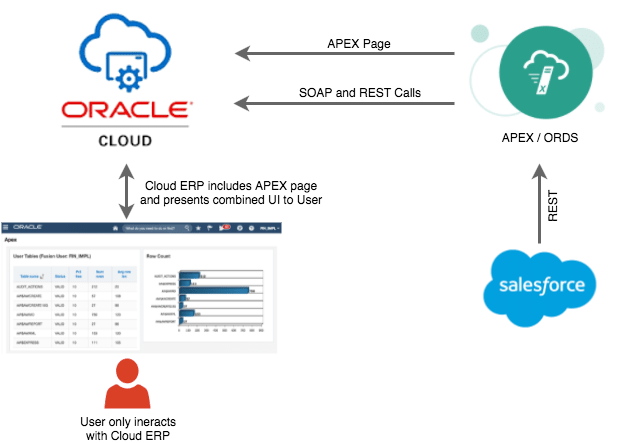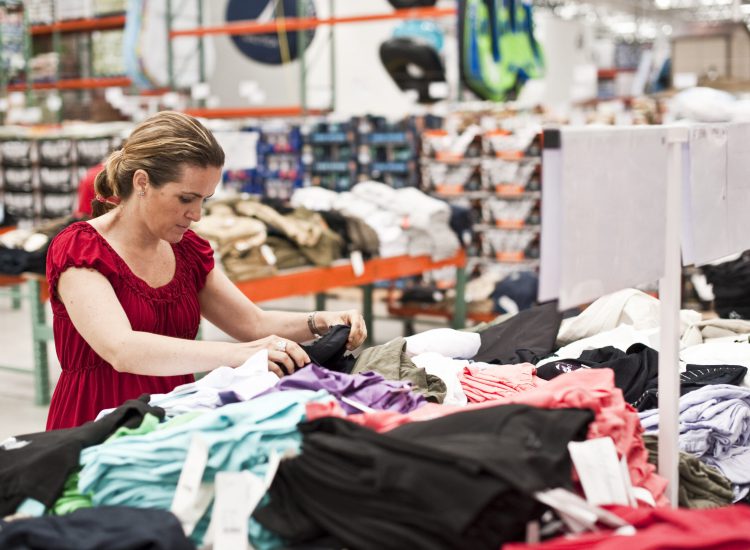Farmers Insurance coverage is the most recent residence insurer to tug out of Florida’s market, labeling the transfer as a enterprise choice that was “essential to successfully handle danger publicity,” per the corporate’s assertion offered to Fortune. Shortly after, AAA introduced it’d cut back its presence in Florida.
This week, AAA introduced that it’d “made the troublesome choice to not renew a really small share of upper publicity house owner’s insurance policies in Florida,” in keeping with the corporate assertion offered to Fortune—due to, what it known as, a “difficult” insurance coverage market. In contrast to Farmers, which introduced its choice earlier this month, AAA will proceed to write down new residence insurance policies in Florida, other than these it’s selecting to not renew.
Provided that Farmers just isn’t the primary residence insurer to cease providing protection in Florida over the previous yr or so, issues are wanting difficult for its housing market, and significantly, its householders which can be already paying the best insurance coverage premiums within the nation, with a mean premium of $6,000 per yr versus the U.S. common of $1,700 per yr, in keeping with Mark Friedlander, Florida-based director of company communications for the Insurance coverage Info Institute. That’s 42% greater than the yr prior, Frielander added.
“Simply within the final 18 months, 15 corporations have stopped writing enterprise in Florida, three have voluntarily withdrawn—Farmers being the newest, and 7 corporations have been declared bancrupt,” Friedlander defined to Fortune simply earlier than AAA’s choice was made public.
The exodus, which the Insurance coverage Info Institute calls a “man-made disaster,” is pushed by two key components in its view: authorized system abuse and declare fraud.
“Florida’s property insurance coverage trade has not posted optimistic monetary outcomes since 2016,” Friedlander mentioned. “Final yr alone, the trade posted a $1.4 billion underwriting loss and $900 billion internet earnings loss. The underwriting losses have averaged greater than $1 billion per yr for the final three years. So it’s been a really paralyzed marketplace for insurers. And it’s not a sustainable mannequin to function within the state. In case you hold dropping that a lot cash, yr after yr, it turns into very difficult.”
Ken H. Johnson, a former actual property dealer and present affiliate dean of graduate packages at Florida Atlantic College—whose analysis focuses on actual property economics, pointed to insurance coverage claims that lead to litigation. Citing information from Florida’s Workplace of Insurance coverage Regulation, Johnson informed Fortune that final yr, 79% of residence possession lawsuits occurred in Florida. That’s expensive for insurance coverage corporations, and numerous what they’re paying goes towards authorized charges moderately than the harm itself, he mentioned. That being mentioned, insurers are leaving the state, and people which can be staying appear to be constantly growing their premiums to offset their losses. And it doesn’t assist that the majority Florida housing markets noticed residence costs soar over 50% between March 2020 and April 2023 (see map beneath), whereas mortgage charges are actually hovering round 7% after a short-lived period of traditionally low charges in the course of the pandemic.
“The price of homeownership is already approach above the place it ought to be,” Johnson mentioned. “We pay actually excessive homeownership costs, and on high of [that] at actually excessive rates of interest, approaching 7%. After which on high of that, we’re going so as to add very costly householders insurance coverage. So affordability goes to develop into a dramatic query for, I imagine, a number of years.”
Florida’s insurance coverage client advocate, Tasha Carter, who was appointed by Florida’s chief monetary officer, Jimmy Patronis, listed 4 components behind the house owner insurance coverage market that she mentioned is in “dire situation.” The primary has to do with claims from latest hurricanes, given hurricane Irma, Michael, and Ian (mixed) generated almost 3 million claims filed and resulted in roughly $46 billion in estimated insured losses. Then, there’s reinsurance charges which have gone up 52% on common within the final yr, which ends up in elevated prices to policyholders within the type of greater premiums. Subsequent, there’s a rise in litigation involving insurance coverage corporations, which additionally ends in elevated prices to policyholders. And the final issue comes all the way down to insurance coverage fraud.
In what appears to be a protection of its choice, in AAA’s assertion it mentioned: “Florida’s insurance coverage market has develop into difficult in recent times. Final yr’s catastrophic hurricane season contributed to an unprecedented rise in reinsurance charges, making it extra expensive for insurance coverage corporations to function. Previous to that, the market was already strained by a rise in claims prices as a result of inflation and extreme litigation.” Farmers, however, didn’t clarify its choice past doing so to handle danger publicity.
It’s clear that there’s a number of components at play, and all of it culminates in householders having much less choices by way of insurance coverage protection.
Related articles:
- https://bargame.xyz/prime-5-penny-shares-with-rising-promoter-holding-right-heres-a-watchlist/
- https://bargame.xyz/analysis_-apples-rising-inventory-market-heft-poses-dilemma-for-fund-managers/
- https://bargame.xyz/how-nigerians-have-been-impoverished-by-the-damaged-fx-market/
- https://bargame.xyz/cathie-wooden-offered-off-21-million-of-tesla-inventory-hours-earlier-than-earnings-dip-now-shes-scooping-up-this-magnificent-progress-inventory/
- https://bargame.xyz/uk-chancellor-to-signal-monetary-companies-settlement-with-eu/
“The householders insurance coverage market is repeatedly shrinking and turning into increasingly more restricted, with much less capability,” Carter informed Fortune. “And meaning it’s turning into increasingly more troublesome for shoppers to search out householders insurance coverage protection.”
On this kind of postmortem interval, as Johnson put it, he doesn’t know precisely the right way to really feel about Farmers leaving the state. Extra so, he’s curious in regards to the relationship the corporate had with its reinsurers, given reinsurers’ capital declined by 15% in 2022.
Farmers Insurance coverage’s subsidiaries will proceed to function inside the state, and the corporate claims solely 30% of insurance policies will likely be affected by its choice to discontinue its Farmers-branded auto, residence, and umbrella insurance policies in Florida. Nonetheless, theoretically, the much less competitors there’s amongst insurers, the extra management they’ve over the market. How that’ll play out by way of particular person prices is unclear, Friedlander appears to suppose that extra shoppers will look to Residents Property Insurance coverage, which he mentioned is a state-backed insurer of final resort, and find yourself with that protection (significantly if their firm fails or leaves Florida, like Farmers Insurance coverage). In that case, Residents Property Insurance coverage is decrease than personal market charges, round 40% much less, Friedlander mentioned, which is an issue in itself due to the tempo at which it’s rising—however that’s for an additional day.
Jason Damm, an assistant professor {of professional} follow of finance on the College of Miami, owns an funding property in Miami that has two separate homes on it (each of which he rents out). He renewed his insurance coverage in April, and his premium went up 25%. A month later, Damm mentioned the insurance coverage firm despatched him a discover that it was pulling out of the state. By June 30, his coverage was canceled.
“I don’t have insurance coverage on the home, which is kind of harmful,” Damm mentioned. “I’ve been wanting, it’s very costly, so I’m attempting to resolve what to do… it’s an enormous drawback. I imply, I do not know what I’m going to do with it, whether or not I’m going to attempt to discover a coverage or simply go with out insurance coverage.”
I don’t have to clarify how dangerous it’s to go with out residence insurance coverage, not to mention in a spot like Florida that’s susceptible to pure disasters, but individuals are doing it. Carter spoke to a client just lately who informed her she is considering self-insurance, regardless that she doesn’t have the monetary means to restore or rebuild her residence if a pure catastrophe had been to strike. Nonetheless, as a way to meet her different monetary calls for, that is what she feels she has to do.
Corporations are additionally turning into extra selective of the properties they insure, Carter mentioned. They’re wanting on the roof circumstances, and the age of roofs, together with the general age of properties. Shoppers with roofs over 10 to fifteen years previous are having a tough time discovering protection, and in some instances, are being requested to exchange their roofs to safe protection, Carter mentioned. Others are limiting the age of properties they’re keen to insure, with some corporations selecting to solely insure newly constructed properties and houses constructed inside the final 5 years.
“Shoppers are experiencing a rise of their insurance coverage premiums,” Carter mentioned. “They’re actually shocked after they obtain their renewal notices…what we’re seeing is for these corporations who’re keen to stay within the state and who’re keen to write down householders insurance coverage protection, sadly, that protection comes with a really, very excessive price ticket that’s making it very troublesome for shoppers to have the ability to afford [it].”
In Johnson’s view premiums are more likely to proceed to extend till laws, that’s already in impact, takes maintain—and it’s not a fast and simple course of as a result of this laws isn’t retroactive. Nonetheless, within the meantime this exodus of residence insures is just going to worsen affordability.
“It’s going to drive up the fee, which is simply going to lengthen this affordability disaster that has developed in Florida,” Johnson mentioned.














